It’s no surprise that many people think Miami is the capital of Florida. After all, this vibrant city is renowned for its stunning beaches, exhilarating nightlife, and exciting culture. However, despite being one of the most famous cities in the state, Miami isn’t Florida’s capital. That honor belongs to Tallahassee.
In this article, we’ll dive into why Miami isn’t the capital of Florida. We’ll also look at what makes Tallahassee so unique.
What is a State Capital?
A state capital is the administrative and political hub of a particular state. It’s often home to the legislature, governor’s office, and other key government offices, as well as monuments, museums, and other institutions that reflect a state’s heritage. It can also serve as a major cultural center with art galleries, universities, parks, libraries, etc.
Having an official state capital is vital for any state because it is a focal point for government operations. The legislature meets regularly to discuss laws and policies affecting all state residents.
These discussions allow elected officials to come together to make decisions on behalf of their constituents in one convenient place instead of having to travel between various cities or towns. Having an official capital also allows citizens from throughout the state to travel there if they have issues related to their local governments or want their voices heard in the legislative process.
The location of a state’s capital is also crucial for historical reasons. It usually reflects something about its past or culture. For example, Tallahassee was chosen as Florida’s capital due to its position inland, away from coastal threats during the Civil War era. Meanwhile, Miami was passed over because it was considered too vulnerable due to its location near potential enemies.
State capitals are also considered important symbols of pride for their respective states. Residents may hang flags outside their homes to commemorate their beloved city or display stickers.
State capitals become synonymous with all that is great about a particular state, even though many people may never actually visit the city themselves. This explains why many think Miami is Florida’s capital despite the actual hometown being Tallahassee.
Florida’s State History
Understanding Florida’s state history will help set the stage for knowing why Miami might be assumed to be Florida’s capital.
It began when the Spanish explorer Ponce De Leon first arrived in the area in 1513, claiming it for Spain and naming it La Florida. The land changed hands a few times over the centuries, from Spain to France and back to Spain again. Finally, it was ceded to the United States as part of the Adams-Onis Treaty of 1819.
In 1821, Florida officially became part of the Union. However, this wouldn’t be permanent until 1845, when they were admitted into the United States as slave states. This eventually led to tension between North and South during the Civil War, leading to Florida joining the Confederacy in 1861. In 1865, after four years of bloodshed and destruction, Florida was finally readmitted into the Union as part of Reconstruction.
After Reconstruction, Tallahassee was selected as an official capital. It beat St. Augustine and Pensacola for its advantageous position in interior Florida, away from coastal threats. Miami was considered a possible capital but lost out due to its location on the coast, making it less secure. Since then, Tallahassee has retained its standing as the official state capital of Florida despite Miami’s allure and popularity amongst tourists who travel there yearly for vacation and work purposes.
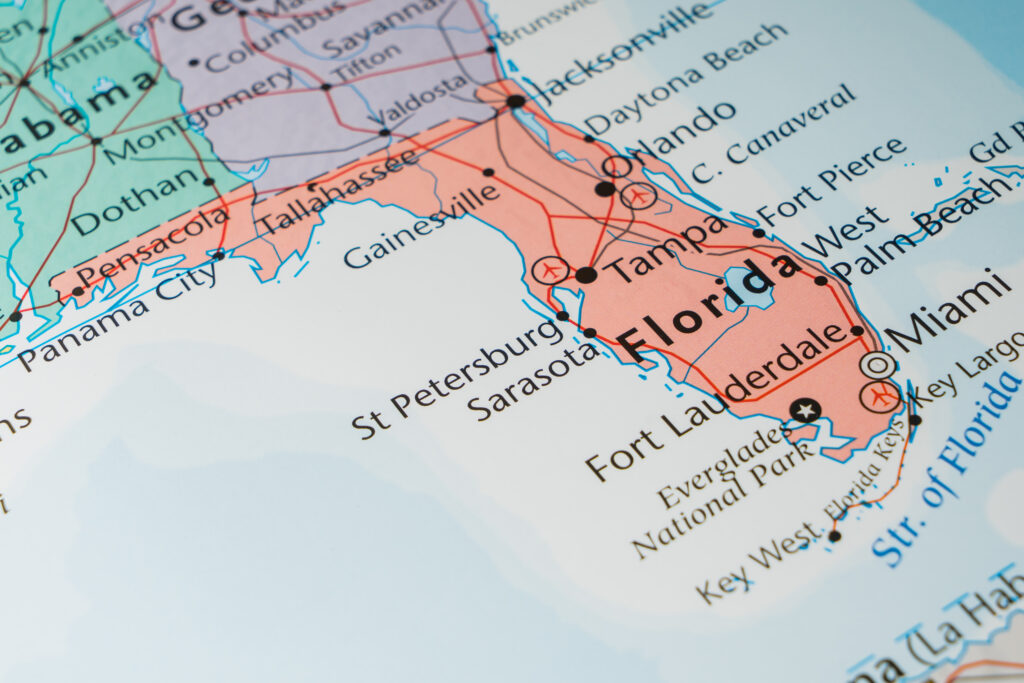
Tallahassee: Florida’s Capital
As a city steeped in history and culture, the capital of Florida has been an essential part of the state for centuries. Located in the panhandle region of northern Florida near the Georgia border, this vibrant city is home to many notable landmarks, such as its historic Capitol building and State Museum. Its geographical location also allows it to be close to much of what makes Florida great: the beaches, forests, rivers, and more. From its earliest days as a Seminole Indian village to its current status as one of the most influential cities in America, Tallahassee’s story is truly unique.
In addition to its history, Tallahassee is also home to many modern amenities such as universities, restaurants, and shopping centers. It is also a significant player in the political realm of Florida, with the city’s Capitol building hosting important legislative sessions throughout the year. Residents often come here if they have issues related to their local governments or want their voices heard in the legislative process.
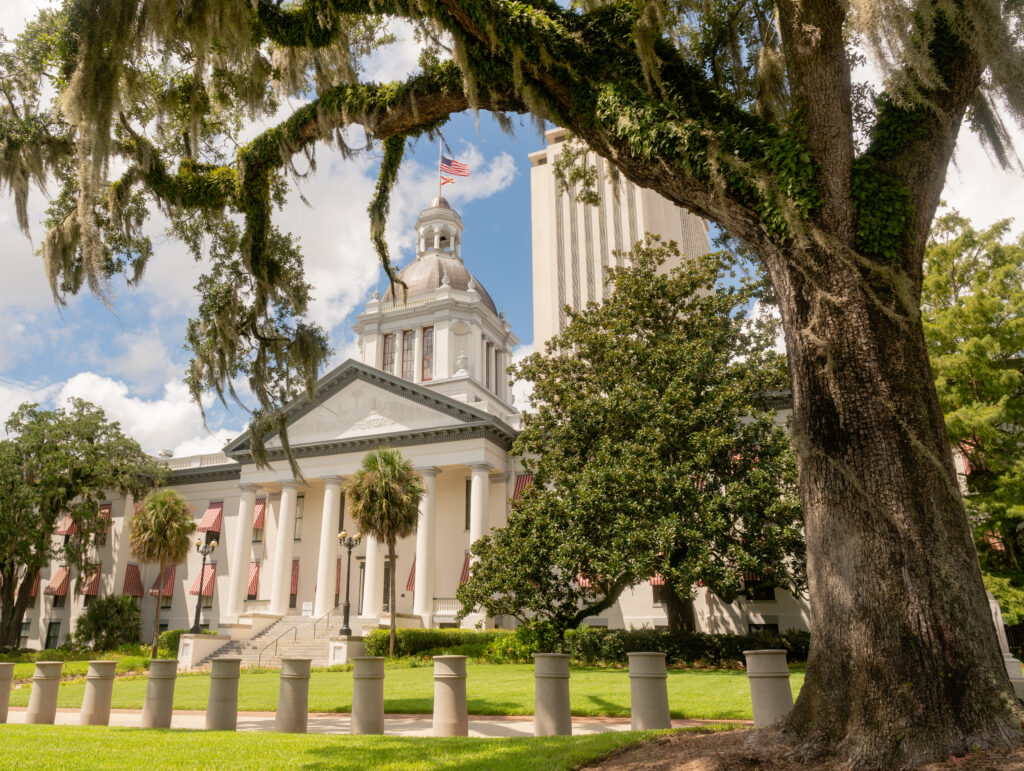
©Blue Sky Behind White Clouds Over the State Capitol on Florida in Tallahassee/Shutterstock.com
What is Miami’s Role in Florida?
Miami is one of the most popular and prominent cities in Florida. It surely holds a special place in the hearts of many Floridians. It is a city shaped by its rich cultural heritage, economic impact, and population size.
As an iconic coastal city, Miami serves as a reminder of the magical beauty of South Florida. The city’s Latino roots are evident throughout Miami’s culture, including Cuban cuisine and Latin music. Miami has become increasingly diverse in recent years, with immigrants worldwide adding their unique flavors.
Miami is also an essential economic engine for Florida. The city’s booming tourism industry attracts millions of visitors yearly who spend billions on vacations, restaurants, shopping, and entertainment. In addition to these traditional forms of tourism dollars, Miami’s port provides an essential connection between Florida and international markets. This makes Miami a crucial hub for goods and services entering or exiting the state.
Furthermore, Miami has experienced tremendous growth in recent years due to its large population size and appeal as a desirable place to live. Since 2010, the population of Miami-Dade County alone has grown by more than 10%, according to data from the U.S. Census Bureau – making it one of the fastest-growing counties in Florida and across all major metropolitan areas in America.
In short, while Miami may not be the official capital of Florida, it certainly plays an essential role within the state (be it culturally, economically, or demographically) that should not be overlooked or underestimated. As such, Miami remains endeared in the hearts of Floridians who proudly call it home.
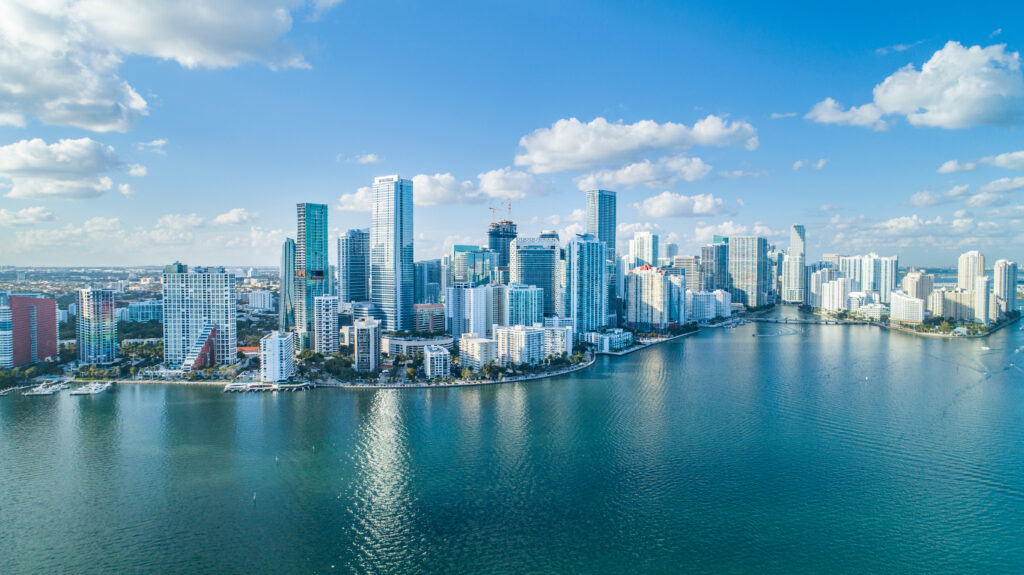
Major Reasons Why Miami is Not the Capital of Florida
Despite its large population size and popularity, Miami is not the official capital of Florida for several key reasons.
Location
First and foremost, its location in the southernmost part of the state makes it inconvenient to serve as a central hub for most of the significant political activity in Florida. Tallahassee is closer to many other cities across the panhandle region, making it a more suitable center for legislative sessions and other important gatherings.
History
The history of Tallahassee as a city has been deeply intertwined with Florida since its founding in 1824. The city was chosen as the state’s capital due to its strategic location between Georgia and Pensacola – two important regional areas to early settlers. Since then, Tallahassee has become an integral part of Florida’s history as many important events have occurred within its city limits, such as a significant Civil War battle and even acts of resistance against Confederate forces during Reconstruction.
No Official Designation
There is no official designation by either federal or state governments that make Miami the official capital of Florida. Therefore, while it may be popular amongst tourists or those living there, decisions about which cities are considered the official capitals must come from an authoritative body. Until an official designation is made by either Congress or by vote through a referendum process, Miami will remain excluded from being named as Florida’s capital city despite its size and clout within America today.
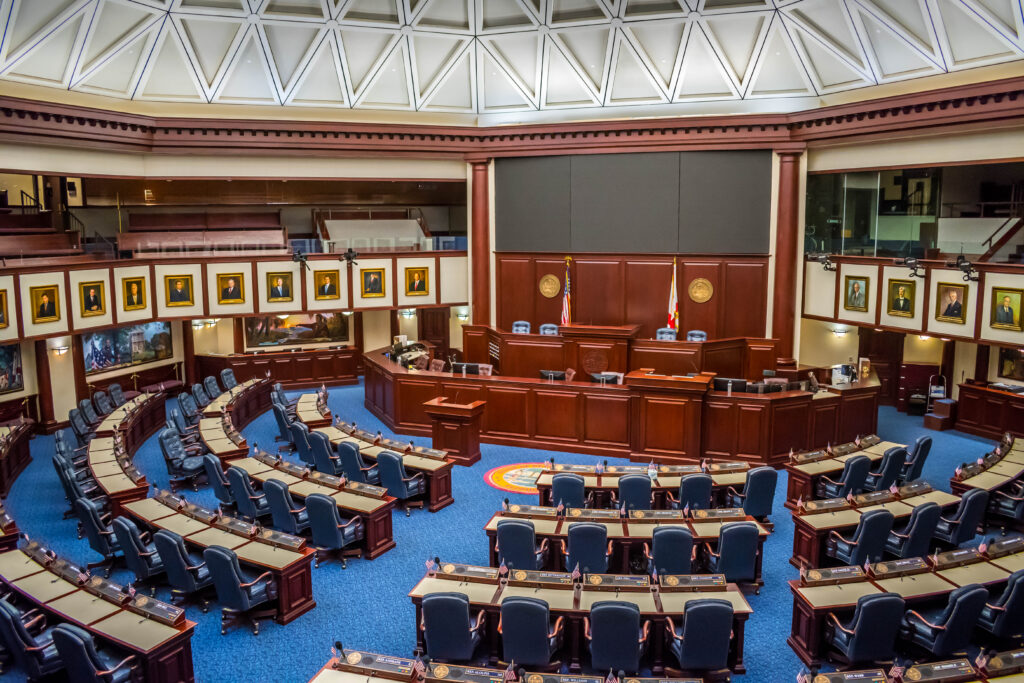
©Cheri Alguire/Shutterstock.com
Why Would Miami Make a Good Capital City?
Miami is a bustling, diverse city with plenty of culture and activity. It’s home to a large population that offers diverse political perspectives, making it an ideal choice for those looking to represent Florida fairly. The city also has one of the busiest ports in the United States, perfect for handling trade negotiations with foreign countries.
In addition, Miami’s central location between North and South America makes it accessible to domestic and international markets. Therefore, Florida’s representatives can access a wide range of business opportunities.
Miami’s tropical climate creates favorable weather throughout most of the year. It’s an attractive vacation destination, providing visitors worldwide with a unique experience they may not find elsewhere in America. With so much going for it, Miami would make an excellent capital for Florida if given a chance.
What Economic Opportunities Does Miami Offer?
Miami has a thriving economy due to its proximity to Latin America and Europe. This position makes Miami an ideal location for companies looking to expand operations or establish satellite offices. Here are some of its significant economic opportunities.
Strong Banking Sector
Miami is known for its strong banking sector and financial services industry, as well as a vibrant tech scene with many homegrown startups. Miami is also home to many medical startups and biomedical research labs, illustrating the city’s commitment to innovation and progress.
Job Opportunities
Beyond businesses seeking to capitalize on these opportunities, Miami also provides plenty of job opportunities for individuals seeking employment. From hospitality jobs at hotels and restaurants to more specialized roles within finance or healthcare, there’s something for everyone in this thriving metropolis. The local government has also made efforts to attract more high-quality jobs by providing incentives such as tax credits for those willing to relocate or start up new businesses, further enhancing the economic landscape in and around Miami. These economic opportunities do not only help individuals achieve their career goals and grow their income. They also contribute positively to society as a whole.
Enhanced Infrastructure
With increased economic activity comes increased investment into infrastructure projects which help stimulate growth throughout the entire region. As a consequence, this ensures more stability across multiple industries while providing previously nonexistent resources. It also leads to improved quality of life within communities by creating better access points for education, health care, transportation systems, and housing options.
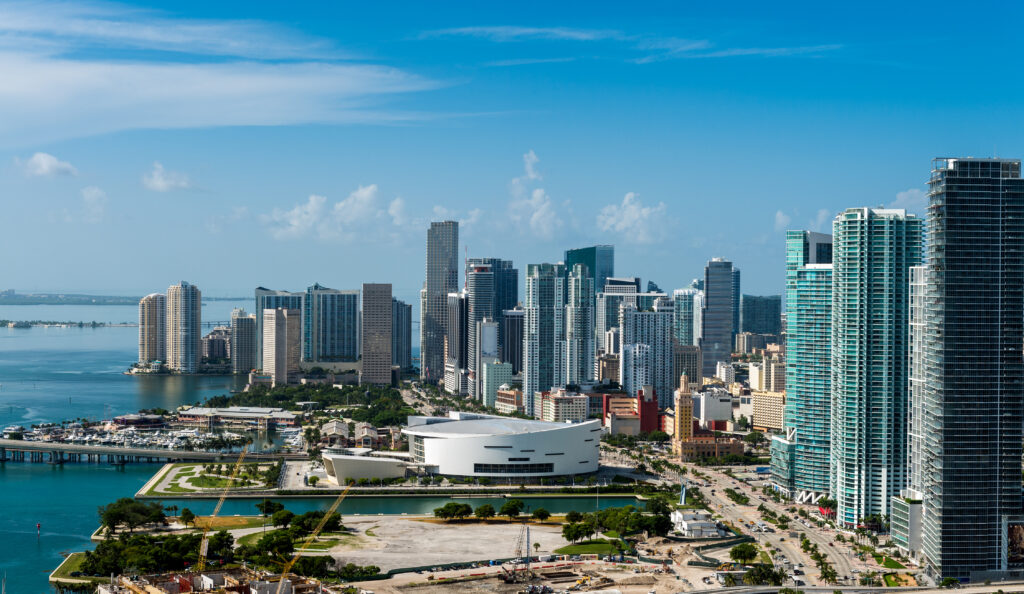
Miami’s Cultural and Social Diversity
As one of the most highly diverse cities in the United States, Miami is a melting pot of cultures from all different parts of the world. This peculiarity makes Miami an ideal city for fostering inclusivity and understanding.
Annual Festivals
The city regularly hosts events like Carnaval Miami, annually celebrating Latin music and culture and other cultural festivals that bring together people from all walks of life. In addition, Miami has a thriving art community with dozens of galleries, museums, and theatres dedicated to showcasing works from local and international artists.
Unique Neighborhoods
Beyond the arts scene, Miami also has many unique neighborhoods that its various immigrant communities have established over the years. For example, little Havana is home to many Cuban Americans, while Little Haiti represents Haitian culture in South Florida. Each neighborhood possesses its distinct character and flavor that adds to the overall richness of the area’s diversity.
Ethnic Enclaves
Likewise, there are many other ethnic enclaves throughout the city, such as Little Saigon (Vietnamese), Little Managua (Nicaraguan), and others. They all offer visitors an insight into different ways of life while providing recent immigrants with a sense of home.
Diversity can be both a challenge and an opportunity for any city, but in Miami’s case, it has had overwhelmingly positive effects on its local economy. By creating a more accepting atmosphere for workers from different backgrounds, companies have been able to bring in talent from around the world without having to worry about language or cultural barriers.
This allows businesses to draw upon a larger pool of potential employees who may possess skills or experiences that would otherwise not be available locally, thereby boosting innovation within their respective fields while creating more job opportunities for everyone involved. It’s no wonder why so many tech firms have chosen to make Miami their headquarters.
Inclusive Education System
The positive effects of embracing diversity can also be seen in Miami’s education system. In fact, Miami’s education system takes pride in providing its students with access to quality resources regardless of background or ethnicity.
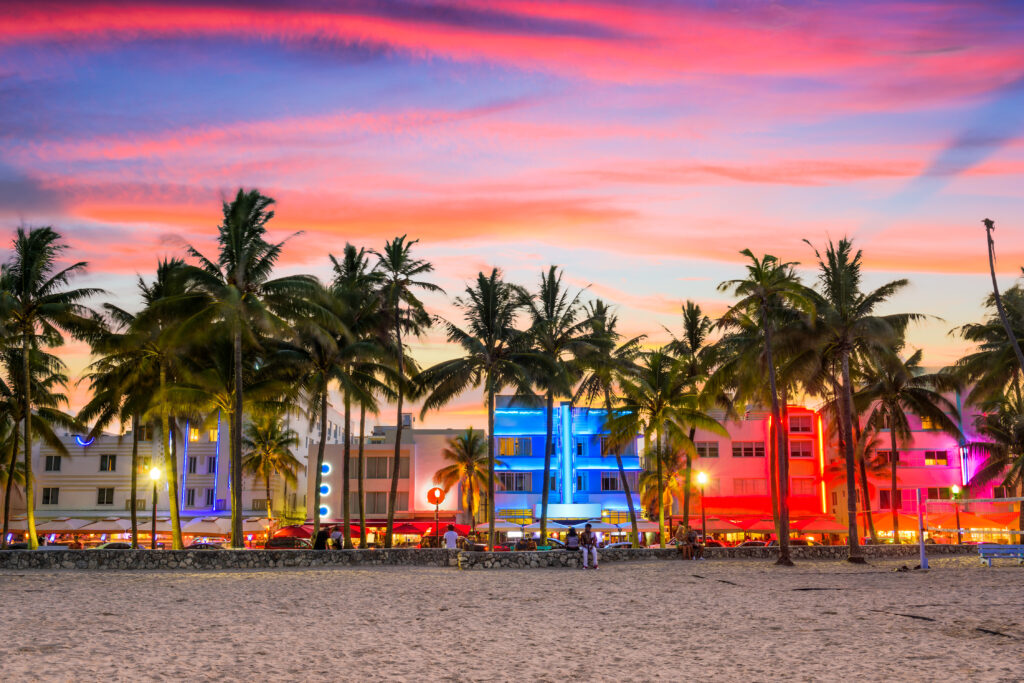
©Sean Pavone/Shutterstock.com
Bottom Line
These factors show that although Miami is an incredibly dynamic and vibrant city, it still isn’t the capital of Florida. Yet, this may remain one of the most frequently asked questions in Florida.
The truth is that Florida’s official state government has been located in Tallahassee since 1824, when it was initially declared the territorial capital by then-governor William Pope Duval. The government made this decision mainly due to its central location within the state.
The strategic positioning provided easy accessibility from all parts of Florida then. Tallahassee was also far away from potential threats from the Gulf of Mexico.
Today, Tallahassee still stands as Florida’s capital city. It is home to many state government offices, such as the Supreme Court of Florida, the Governor’s Mansion, and the State Capitol. And while Miami may not be Florida’s capital, it remains an integral part of the state.
The post Why Isn’t Miami the Capital of Florida? appeared first on AZ Animals.
from Animal News, Facts, Rankings, and More! - AZ Animals https://ift.tt/0mKbvIq